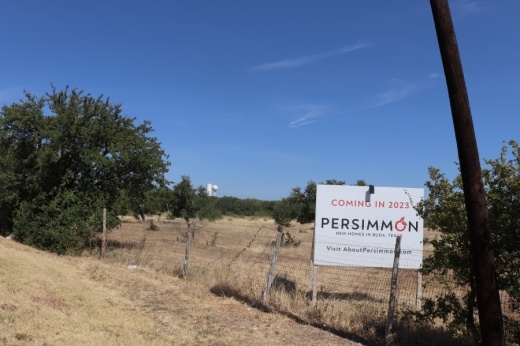Terms to know
MileStone CEO Garrett Martin told Community Impact that instead of spending the tax revenue on road projects, the company will have to spend it to either connect to other utility services or build the infrastructure for it.
The developers have filed for a municipal utility district through the TCEQ, a special type of taxing district over a set area that generates tax revenue to be used for projects within the development.
In case you missed it
MileStone submitted the petition to create a MUD in June.
In the months that followed, the TCEQ received 46 requests from community members for a public hearing over the project and the MUD as well as 10 written comments, according to the TCEQ.
The city of Buda was one of the “affected parties” that submitted a request for a hearing, which City Manager Micah Grau said to his knowledge is something the city hasn’t done before.
“The reason we got to this point is that we’ve heard from numerous property owners adjacent to the property expressing concerns about density, traffic, trees, impacts on wildlife and impacts on the water supply,” Grau said.
One more thing
On Oct. 20, City Council adopted an updated term sheet for the project; this comes more than a year after the first term sheet was adopted.
A term sheet is not legally binding but outlines requirements that both parties have and that need to be met to reach a development agreement, which will give the project the green light to go ahead.
The new sheet outlines the following priorities:
- Establish timelines for transportation improvements
- Dedicate land for fire and emergency medical services station
- Reserve land for a school
- Allot no more than 2,300 residential units, down from 2,800
- Tree mitigation
- Develop and aquifer storage and recovery well to help meet water demands
If Buda and MileStone come to a development agreement, the city will annex the property into its limits and provide utility services. MileStone will be required to abide by the city's development standards and will work on sitewide infrastructure improvements.
If neither parties can come to an agreement then MileStone will continue forth with its MUD and only need to abide by Hays County regulations. The city would have no power over what is done within the development but also won't have to supply it with utilities.
What happens next?
Both city and development officials have expressed the desire to come to an agreement.
“We're encouraged by the city of Buda's most recent term sheet and are most optimistic that we might be able to build the project in the city of Buda's jurisdiction,” Martin wrote to Community Impact. “Many details must be worked through to ensure the viability of the project in Buda's jurisdiction and we're hopeful that those details can be resolved quickly.”
Coming to an agreement would mean that all parties are satisfied with the project enough to move forward and would cancel the MUD plans.
The TCEQ generally reviews and completes MUD applications in 120-180 days, which are usually not contested, said Laura Lopez, media and community relations manager.
“If a [public hearing] request is granted, the matter will be referred to the State Office of Administrative Hearings,” Lopez wrote in an email to Community Impact. “Since the [MUD] creation will need to be considered at a future commission meeting and possibly referred to the SOAH, we do not know if the creation will be approved or not.”
A public hearing has yet to be scheduled, according to the TCEQ website.





